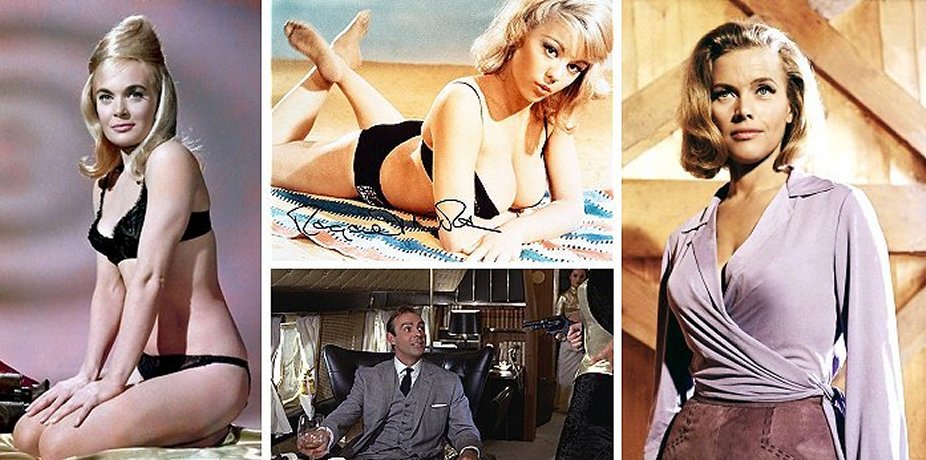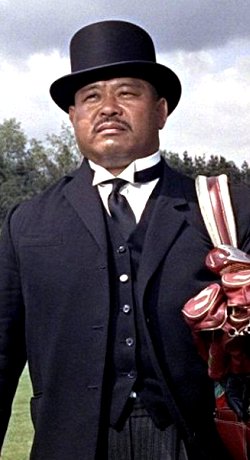

|
||
 |
| While
investigating a gold smuggling operation being carried out by Auric Goldfinger
Bond uncovers a daring criminal plan, - operation Grand Slam, to raid America's
gold reserves held in the United States Bullion Depository at Fort Knox.
This is to be achieved with the help of a consortium of American mobsters
and a team of women stunt fliers, led by hay-loving Pussy Galore, to spray
the area with poison gas before cutting into the facility using an industrial
laser which Bond has already seen from a distance that was a bit too close
for comfort. Once inside, Goldfinger plans to detonate a 'dirty' nuclear
device to contaminate the gold, thereby vastly increasing the value of his
own holdings. 007 infiltrates the group and discovers the details, leading a counter attack during the raid and, after a showdown with the amazing Oddjob in the vault itself, manages to neutralise the device with seconds to spare. Oddjob was played by Harold Sakata who had been an olympic silver and gold medal weightlifter for the USA. Goldfinger meets his fitting end in a chilling manner during his 'escape' when he is sucked out of the window of a jet plane after the cabin depressurises. Which just left a somewhat contrite Pussy Galore for Bond to deal with in his usual manner. Goldfinger, which premiered at the Odeon Leicester Square, London, on 17th September 1964, is the third film and seventh novel in the James Bond series starring Sean Connery as Fleming's fictional MI6 agent, finding Bond in America after an eventful saunter around Europe in his less-than-standard Aston Martin DB5. The film also features Honor Blackman as Bond girl Pussy Galore and the brilliantly cast Gert Fröbe as the Auric Goldfinger of the title. Goldfinger was the first of four Bond films to be directed by Guy Hamilton, who had previously turned down the chance to direct Dr No, and most of the filming took place between January and July 1964 at European locations in the UK and Switzerland and American locations in Kentucky and Florida. The title song performed by Shirley Bassey was composed by John Barry with lyrics by Anthony Newley and Leslie Bricusse. The $3million production budget for Goldfinger was equal to the first two films combined, but managed to recoup this in the first two weeks of general release. The film release was accompanied by a major promotion of licensed tie-ins which included the gold Aston Martin DB5 car from Corgi Toys (the car in the film was actually silver in colour) that became the biggest selling toy of the year. Goldfinger was the first film to see both the extensive use of gadgetry and the stunning opening title sequences for which the genre became famous. The opening credit sequences were conceived and designed by Robert Brownjohn, projecting scenes from James Bond films onto Margaret Nolan's body and was apparently inspired by his seeing the light projected onto people's bodies as they got up and left a cinema. The film is very memorable for several reasons, not least of which were the scenes of a gold-painted Shirley Eaton, although it is actually Margaret Nolan who features as the golden girl in the title sequences. Ian Fleming, the author, actually lived next door to an architect named Erno Goldfinger. 
 click on above for larger images also see Bill Harry's Sixties pages on Sean Connery as 007 and both the 'Golden Girls' Margaret Nolan and Shirley Eaton |
||
|
|
All
Original Material Copyright SixtiesCity
Other individual owner copyrights may apply to Photographic Images |